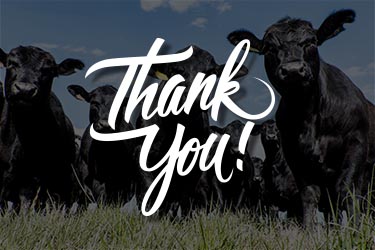October 12 is National Livestock Veterinarian Day

Living large — working as a large animal veterinarian
Today you dewormed cattle, delivered a breech calf and addressed a group about recommended vaccine storage temperatures … probably all before lunch. Your office travels with you, your footwear is waterproof and your average patient weighs more than a thousand pounds. Welcome to a day in the life of a large animal veterinarian.
Large animal veterinarians by the numbers
According to 2017 U.S. veterinary statistics from the AVMA, food animal, mixed animal and equine vets account for less than 18 percent of veterinarians in private clinical practice. That means of the nearly 71,400 veterinarians employed in private practices, only about 12,740 focus on large and/or food animals.
When broken down by large animal or mixed animal practice, the numbers show a male majority. Equine practice vets have shifted to a female majority at 53 percent.
Projections from the Bureau of Labor Statistics note that the need for large animal vets is on the rise while the number of graduates opting for this specialty is on the decline. Numerous articles have been written on the subject, suggesting evolving preferences to practice in suburban or city settings, as well as the allure of higher pay, regular work hours, and less physical hardship and travel. In fact, the AVMA provides links to more than 50 news reports on the food supply veterinarian shortage.
No shortage on the number of animals to treat
While some producers have taken on more preventive care responsibilities such as administering vaccines and antibiotics to their herds, there’s no shortage on the number of animals to treat in the United States. In fact, 2018 figures show there are:
- 103 million cattle
- 5.23 million sheep
- 2.6 million goats
- 72.9 million hogs and pigs
- 9.2 million horses
Role of large animal and food animal vets
AVMA research shows almost zero unemployment for food-animal or mixed-animal practitioners. The demand for non-traditional services will continue to rise, including financial consulting, environmental consulting, genetics and reproduction.
The role of food animal vets working in the academic and government sectors remains pivotal to maintain the health and safety of the food supply, filling roles in federal government including the FDA, military and U.S. Department of Agriculture to:
- Inspect food quality
- Review new animal drugs for safety and efficacy
- Research ways to prevent bacteria spreading into food and animal feed
This role isn’t new. In 1927, the Food, Drug and Insecticide Administration, (now called the FDA), hired veterinarian Dr. Henry Moskey to evaluate the nutritional and treatment claims of vitamins and minerals. The Bureau of Veterinary Medicine was established in 1965 to oversee veterinary medical review, new drugs and research and the impact of animal welfare on national health. Today, the organization now known as the Center for Veterinary Medicine (CVM) is a public health organization maintaining regulatory authority over food, food additives, drugs and devices for animals.
Financial incentives for food animal specialties
Regardless of the number of livestock, the fact remains that there are fewer large animal vets graduating from veterinary colleges. More financial aid programs and grants have been established to incentivize students to specialize in food supply veterinary medicine.
Several professional associations offer educational and externship opportunities for veterinary students, including:
- AVMA Government Relations Student Externship Program
- AAVMC Member Institution Food Animal Career Incentive Programs
- American Association of Avian Pathologists (AAAP) Ken Eskelund Preceptorship Program
- American Association of Bovine Practitioners (AABP) Grants and Scholarships
- American Association of Swine Veterinarians (AASV) Foundation Swine Externship Grant Program
- Academy of Veterinary Consultants – Armstrong Scholarship
- Academy of Veterinary Consultants – Externship Grants
- FDA Center for Veterinary Medicine Clerkship Program
- FDA Summer Intern (SI) Program "Windows to Regulatory Research"(FDA)
- FSIS Volunteer Student Program (VSP) (FSIS)
The Association of American Veterinary Medical Colleges (AAVMC) compiled a listing of veterinary programs that offer programs to recruit, retain, and mentor veterinary medical students interested in food animal careers.
The Veterinary Medicine Loan Repayment Program offered through the U.S. Department of Agriculture will pay up to $25,000 each year toward, “qualified educational loans of eligible veterinarians who agree to serve in a (National Institute of Food and Agriculture) NIFA-designated veterinarian shortage situation for a period of three years.
Covetrus values the contributions of equine and food animal veterinarians. For the supplies and medications you need for your practice, contact your Covetrus representative at 855.724.3461 or online.
Sources
https://www.avma.org/KB/Resources/Statistics/Pages/Market-research-statistics-US-veterinarians.aspx
https://modernfarmer.com/2013/06/the-vanishing-farm-veterinarian/
https://www.avma.org/KB/Resources/Reference/Pages/Food-Supply-Veterinary-Medicine-In-the-News.aspx
http://usda.mannlib.cornell.edu/usda/current/Catt/Catt-07-20-2018.pdf
http://usda.mannlib.cornell.edu/usda/current/SheeGoat/SheeGoat-01-31-2018.pdf
https://www.nass.usda.gov/Newsroom/2018/03_29_2018-1.php
https://www.ridewithequo.com/blog/the-horse-industry-by-the-numbers
https://equimanagement.com/articles/cost-equine-veterinarian-28435
http://www.aavmc.org/additional-pages/foodanimalprograms.aspx
https://nifa.usda.gov/program/veterinary-medicine-loan-repayment-program
https://www.veterinarianedu.org/large-animal-vet/
https://www.bovinevetonline.com/article/strong-outlook-food-animal-vets
https://www.fda.gov/AnimalVeterinary/NewsEvents/ucm278274.htm
https://www.fda.gov/AboutFDA/CentersOffices/OfficeofFoods/CVM/ucm554242.htm
https://www.fda.gov/AnimalVeterinary/ResourcesforYou/AnimalHealthLiteracy/ucm251326.htm
Need Regulatory Assistance
If you need help with regulatory or licensing issues, we're happy to help. We have a wide variety of resources to help you when issues arise.

Careers
Are you looking for a place to let your talents shine? At Covetrus, we help our practitioner customers better serve their patients and take pride in providing the best customer experience possible. Search our open positions to see our available opportunities.
Newsletter
Stay current with what’s going on with Covetrus, subscribe to receive our newsletter and email communications. Subscribers will receive the latest information in practice management, sales and marketing, animal health, and more.


Leave a comment